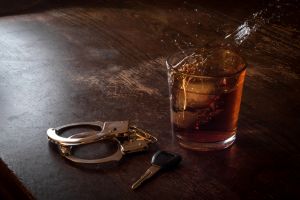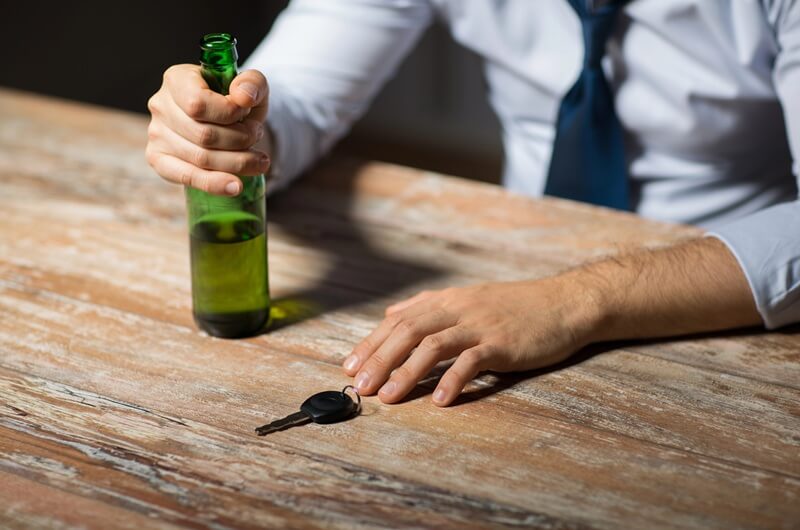Can A Third DWI Charge Be Reduced In Virginia?
Can A Third DWI Charge Be Reduced In Virginia?
Getting a third DWI in Virginia is serious. It’s a felony, and the penalties are harsh—mandatory jail time, heavy fines, and losing your license. But the damage doesn’t end there. A conviction can follow you for years, making getting a job, finding housing, or even keeping certain rights harder.
Still, there may be a way forward. In some cases, a third DWI charge can be reduced. This depends on the details of your case, the evidence, and how it’s handled in court.
In this article, we’ll walk through when reductions are possible, what legal strategies defense attorneys use, and how alternative sentencing might ease the consequences. If you’re facing a third DWI, knowing your options—and acting fast—can make all the difference.
The Severity Of A Third DWI In Virginia
A third DWI charge is not treated lightly in Virginia’s courts. By this point, the legal system considers the individual a repeat offender, and the penalties reflect that status. Understanding what this charge entails is the first step toward navigating the legal path ahead.
Legal Classification & Penalties
In Virginia, a third DWI within ten years is classified as a Class 6 felony. This brings a mandatory minimum of 90 days in jail, six months if the prior conviction occurred within the past five years.
Offenders face a fine of at least $1,000, indefinite license revocation, and the potential forfeiture of their vehicle. The court may also impose supervised probation and require enrollment in substance abuse treatment programs.
These consequences extend beyond court orders. A felony conviction becomes a permanent mark on a person’s criminal record. It can limit access to professional licenses, disqualify individuals from specific jobs, and complicate future legal matters. In many ways, the sentence continues long after the jail time ends.
Long-Term Consequences
The impact of a felony DWI stretches well into the future. Employment opportunities may be limited, especially in industries that require background checks. Housing applications can be denied, and insurance premiums often increase dramatically.
Additionally, convicted individuals may lose civil rights, such as voting or owning a firearm. This cumulative weight is why some defendants seek options to reduce their charges.
Possibility Of Reducing A Third DWI Charge
Despite the seriousness of a third DWI charge, reduction may be possible in specific situations. Virginia law does not prohibit plea agreements or alternative resolutions, even for repeat offenses. However, reductions are never guaranteed and depend heavily on the strength of the prosecution’s case, as well as the defendant’s history and conduct.
Factors Influencing Reduction
Each case carries its own set of circumstances. Courts may consider whether the prior offenses occurred many years ago or if the latest arrest involved a borderline blood alcohol concentration (BAC). Demonstrated efforts at rehabilitation, such as voluntarily enrolling in treatment, may also work in the defendant’s favor. Cooperation with law enforcement during the arrest may be viewed positively during negotiations.
Additional considerations include:
- Lack of aggravating factors, such as no injuries or property damage.
- Mitigating personal circumstances, such as health issues or family responsibilities.
- Strong community or professional support.
Legal Avenues
Legal counsel may pursue several avenues to reduce a third DWI charge. Plea negotiations can sometimes lead to a lesser offense, such as reckless driving involving alcohol, commonly referred to as “wet reckless.”
Alternatively, a charge may be reduced when procedural or constitutional violations weaken the prosecution’s case. In some instances, prosecutors may offer reduced sentencing in exchange for participation in treatment or education programs.
While securing a charge reduction is never simple, it becomes more achievable when supported by strong legal arguments. The following section will examine attorneys’ legal strategies to challenge DWI evidence, often the cornerstone of a successful defense.
Legal Strategies To Challenge Evidence
A strong defense begins with a thorough review of the evidence. DUI attorneys play a vital role in this process. They identify flaws in handling the case, from the initial traffic stop to the administration of sobriety tests.
Their objective is to question the validity of the prosecution’s claims and, when possible, suppress or discredit unreliable or unlawfully obtained evidence. This level of scrutiny can create leverage in negotiations or even lead to a dismissal of charges.
Examining The Traffic Stop
Every DWI case starts with a traffic stop, and its legality must be evaluated. Attorneys assess whether law enforcement had reasonable suspicion or probable cause to initiate the stop. If an officer lacked a legitimate basis, any evidence gathered afterward may be inadmissible. An unlawful stop can undermine the entire case.
Scrutinizing Testing Procedures
Sobriety testing is another area where errors frequently occur. Lawyers examine whether breathalyzers were calibrated correctly and if officers followed standard procedures. Any deviations could cast doubt on the accuracy of the test results. Additionally, mishandling of blood samples or improper chain of custody can weaken the prosecution’s position.
Witness Testimonies & Police Reports
Attorneys also review reports and testimony for inconsistencies or exaggerations. Statements that conflict with video evidence or physical observations can be used to challenge credibility. Cross-examination may reveal gaps or biases that undermine the case. Minor discrepancies can lead to significant opportunities in court.
DUI attorneys shift the balance of power by challenging how evidence was obtained and presented. These efforts often open the door to plea negotiations or sentencing alternatives.
Negotiating Plea Deals & Alternative Sentencing
When the prosecution’s case is not airtight, defense attorneys may negotiate for a reduced charge through a plea agreement. This often involves pleading to a lesser offense with fewer long-term consequences than a felony DWI.
Courts may also consider the defendant’s willingness to undergo rehabilitation, attend alcohol education programs, or complete community service. These factors demonstrate accountability and a commitment to change.
Alternative sentencing can include supervised probation, restricted driving privileges with an ignition interlock device, or participation in court-approved treatment plans. Such options may satisfy the court while reducing the burden on the individual. These outcomes require persuasive advocacy and a clear presentation of mitigating circumstances.
Effective negotiation is about reducing penalties and building a foundation for rehabilitation. With the proper representation, these opportunities can shift the course of a case.
The Irving Law Firm Protects Your Rights
At The Irving Law Firm, defending those accused of serious offenses is not just our profession—it’s our purpose. A third DWI charge carries the weight of a felony, but we believe no case is without hope.
Our team investigates every angle, from the legality of the traffic stop to the reliability of test results. We fight to reduce charges, negotiate favorable terms, or pursue alternative sentencing when possible. We treat clients with respect and dignity, not judgment.
Every case is approached with diligence, strategy, and the aggressive representation it deserves. Our attorneys understand the stakes and are prepared to challenge every detail the prosecution presents. When your future is on the line, trust a legal team committed to protecting it.
The road ahead may be difficult, but no one has to face it alone. The Irving Law Firm is ready to stand beside you every step of the way.
A third DWI in Virginia can carry life-changing consequences, but it doesn’t have to define your future. With experienced legal representation, such as The Irving Law Firm, it may be possible to challenge the evidence, seek a reduction, or pursue alternative sentencing.
Every case is unique, and every client deserves a defense that reflects their needs. Legal outcomes can change, especially with the right team fighting in your corner.






